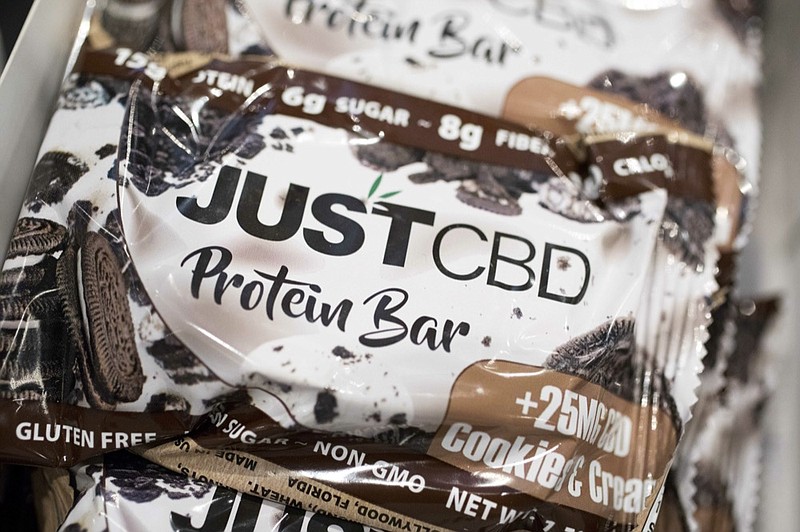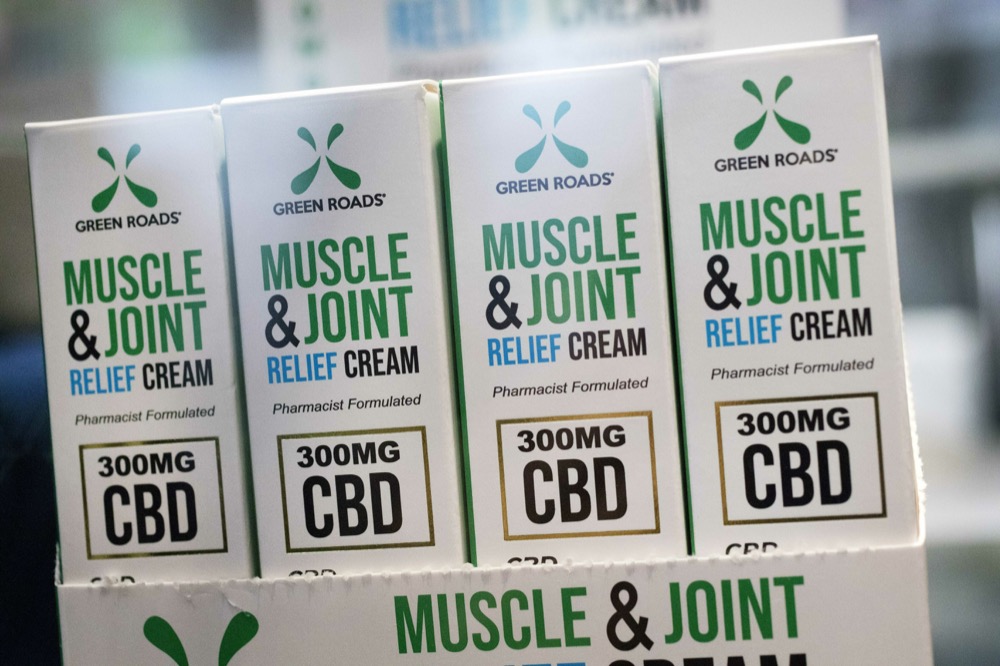SILVER SPRING, Md. - CBD products have surged in popularity despite confusion around their legal status. Now U.S. regulators are exploring ways the hemp ingredient might officially be allowed in food, drinks and dietary supplements.
The U.S. Food and Drug Administration held a hearing Friday to collect information about cannabis compounds such as CBD, which is already available in candy, syrups, oils, drinks, skin patches and dog food.
CBD often comes from a cannabis plant known as hemp, which is defined by the U.S. government as having less than 0.3% THC, the compound that causes marijuana's mind-altering effect. CBD doesn't cause that high, but fans of the products claim benefits including relief for pain and anxiety.
No decisions are expected immediately, but the hearing is seen as an important step toward clarifying regulations around the ingredient.
"There is mass confusion in the marketplace," said Peter Matz of the Food Marketing Institute, one of dozens of speakers who addressed the FDA panel.
Although the 2018 Farm Bill decriminalized low-THC hemp and CBD nationally, some consumers still fear using the products because of legal uncertainty.
Elisha Millan, owner and founder of Grass Roots Health on East M.L. King Boulevard in Chattanooga, told the Times Free Press that adding more regulation could help give people clarity.
"I think it will be a positive, because the people that are already taking the product and experiencing it, they're believers already, but there are definite legal loopholes that individuals are afraid they'll be falling into," she said, citing working professionals who are subjected to drug tests and fear repercussions.
Millan opened her first hemp/CBD store in June 2017 after taking CBD to treat her Crohn's disease. Since then, she's opened a second location in Fort Oglethorpe.
"If [regulation is] done in a common sense way, it'll open up avenues for people who are not taking CBD to use it in their everyday life," she said.
Other speakers at Friday's hearing, including academic researchers, businesses and consumer advocates, urged the FDA to move quickly, noting that the industry is growing rapidly with little oversight. That is raising concerns about the accuracy of product labels and people not realizing how much they may be consuming through various products.
Millan said another problem is operating CBD businesses across state lines.
"We haven't been able to get a clear understanding between states about what forms of hemp are legal and what forms are illegal."
Before the hearing began, acting FDA Commissioner Ned Sharpless noted critical questions remain about the safety of CBD, such as how much is safe to use daily and the compound's effects on pregnant women and children.
For now, the FDA has said CBD is not allowed in food, drinks and supplements. But given the agency's limited resources, many do not expect the agency to enforce the position unless products make explicit health claims that could endanger people.
Adding to the confusion, some states like Colorado allow it in food and drinks. In New York City, where officials have warned it's not allowed in food and drinks, restaurants and stores have continued selling it.
Staff writer Elizabeth Fite contributed to this story.
The Associated Press Health and Science Department receives support from the Howard Hughes Medical Institute's Department of Science Education. The AP is solely responsible for all content.


